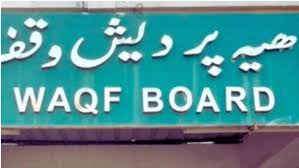New Delhi, July 4 — The Centre has notified the ‘Unified Waqf Management, Empowerment, Efficiency and Development Rules, 2025’, even as the Supreme Court continues to deliberate on the constitutional validity of the Waqf Amendment Act, 2025. The rules, issued under Section 108B of the amended Waqf Act, aim to digitize and streamline waqf property administration across India.
While the Waqf Amendment Act itself was notified on April 8, 2025, a batch of petitions challenging it remains pending before the apex court. The Supreme Court, having reserved its verdict on May 22, is expected to pronounce a judgment later this month. Chief Justice BR Gavai, who heads the Bench hearing the matter, underscored during proceedings that there exists a presumption of constitutionality in favour of laws passed by Parliament.
The notified rules introduce a digital overhaul of the waqf administration system. A centralised portal and database will be maintained under the supervision of a Joint Secretary in the Ministry of Minority Affairs. Each waqf and its associated properties will receive an auto-generated unique identification number, intended to improve transparency and tracking.
The rules also require every mutawalli (manager of a waqf) to register on the portal using mobile and email OTP authentication. Only after authentication can a mutawalli access and update the property details of their waqf.
States must appoint a Nodal Officer (minimum rank: Joint Secretary) to establish a centralised support unit. These units, in coordination with the Centre, will aid in uploading data, auditing records, and maintaining accounts. The new framework aims to ensure accountability and clarity in the functioning of Waqf Boards.
Under the amended Act, any new waqf must be registered within three months of its creation, provided that the land or resource being declared as waqf is proven to be self-owned and not in violation of women or children’s inheritance rights. The Divisional Commissioner is tasked with verifying such ownership claims.
The Centre has also empowered state governments to appoint diverse representatives to Waqf Boards, including members from backward classes, and both Sunni and Shia communities, to foster inclusivity.
Further, any inquiry into potentially wrongful declaration of land as waqf must be concluded by the designated officer within one year from the time the District Collector refers the matter.
On completion of state-wide surveys, governments are required to publish the full list of auqaf including property boundaries, usage, occupancy, details of the waqf creator, and current management. The list must be uploaded on the national portal within 90 days of its publication in the Official Gazette.
These developments come amid heightened legal scrutiny. The government maintains that the rules bring much-needed reforms to waqf governance, while critics argue the changes may overreach into religious rights.
Centre Notifies Waqf Management Rules Amid Ongoing SC Challenge to Amendment Act

